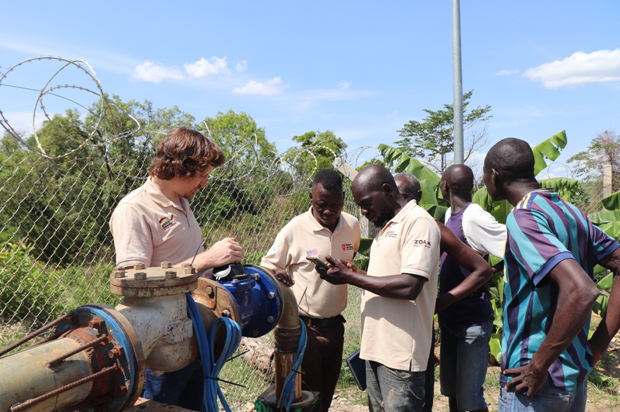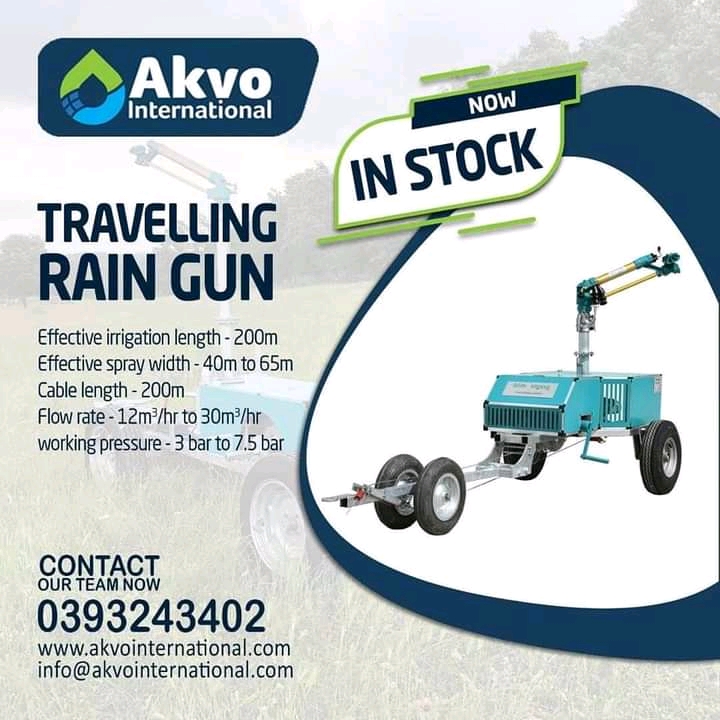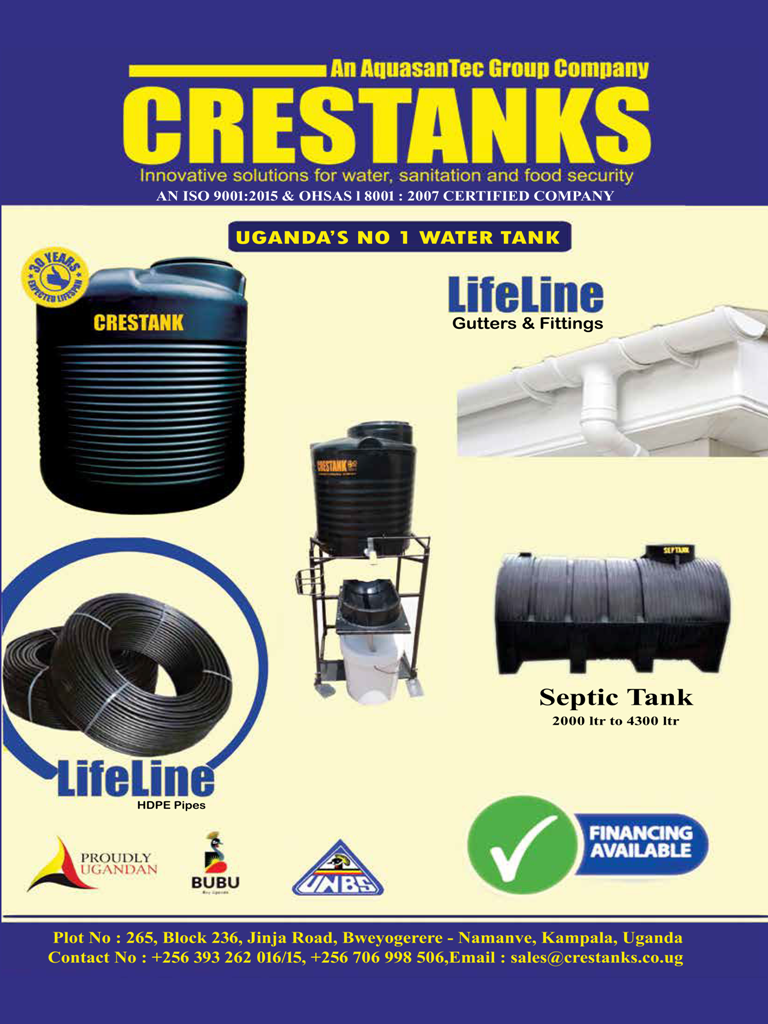WEST NILE: At our arrival somewhere deep along the river Enyau in Omugo zone II which is an extension of Rhino Camp Refugee Settlement, the massive 57.3KW shinny array of solar panels greeted us. The surrounding bushes and a general peaceful flow of the Enyau River through the rocks gives such an exciting first impression to greet the guardsI am particularly awed as Mr Mathis Biermann, the project manager Malteser International based at the Arua office, in the company of Eng Alfred Chadonga takes us through a stepby-step process of how water from what appears to be a simple borehole in this particular location ends up benefitting more than 9,000 people in two refugee hosting villages in Omugo zone II.
A 120,000 liter capacity tank stands at the highest altitude in the horizon 4km away from this solarpowered borehole. There are 35 tap stands placed at various points in the villages. Each stand has a varied number of stands and a total of 185 taps are available to the residents.
Malteser International alone has 15 of such water facilities spread across the Rhino camp and together with other partners, they ensure the refugees have water to the required standards.
According to statistics from the Office of the Prime Minister, the average refugee now gets slightly above 20litres of water per day which conforms to the prescribed United Nations standards. Malteser: The long, eventful journey to solar-powered water systems in West Nile region: At our arrival somewhere deep along the river Enyau in Omugo zone II which is an extension of Rhino Camp Refugee Settlement, the massive 57.3KW shinny array of solar panels greeted us. The surrounding bushes and a general peaceful flow of the Enyau River through the rocks gives such an exciting first impression to greet the guards. But for one who ‘saw it all’ from the influx of mainly the South Sudanese refugees, such a trend of water supply nearly seems unbelievable. True to their target, Malteser and the other water suppliers in the refugee settlements in Rhino camp have come a long way to attain success.
How Malteser championed the march towards solar-powered water systems
Mr Stephen Lumumba, a Malteser programme co-ordinator, says the organisation first established base in February 2014, following the influx due to the deadly 2013 South Sudan war.
“We started with WASH because there was an assessment done to ascertain the needs of the refugees and we realised that the most pressing need was water,” says Mr Lumumba.
He says there was a continuing problem of insufficiency because the hand pumps that had been drilled in haste were not giving adequate water as the numbers soared. To make matters worse, Lumumba says the general water table in Rhino camp goes down during the dry spells
“To avoid that, we came up with the idea of motorizing the existing boreholes so that after pump testing to see their capacity, we could try to pump water out of them.
“That’s where the ideas of tap stands in the settlements started and really helped to avert issues of conflict caused by long distances, overcrowding that were associated with the hand pumps. The whole community quickly embraced the new system. So we asked why can’t we do more?” he further explains.
From May to December 2014, Lumumba says Malteser had already motorised 10 existing boreholes using solar power. “Everybody was impressed and that’s how Malteser started getting more funds,” he says. He added: “In 2015, with those ideas in place, we wrote some proposals and got funding from ECHO to establish four huge systems quite bigger than what we had in Rhino camp for one year to cater for the big influx in Bidi Bidi, Yumbe district.”

These he says were swiftly followed by some funding from BPRM under a consortium, including ZOA and IAS to establish four boreholes and later their biggest project in the region in Omugo. “That is how our operations increased in West Nile region,” he explains. Lumumba says 14 out of 15 of their water establishments in Rhino camp are entirely powered using solar, with only one hybrid (both solar and generator). Fast forward to 2021, he says the main focus is in Rhino camp to try and maintain the systems so that the community is continually served. Reaction from other stakeholders Dennis Mbaguta, settlement commandant, Rhino Camp From May to December 2014, Lumumba says Malteser had already motorised 10 existing boreholes using solar power. Agnes Kagu, refugee and member of water user committee, Tank VII, Omugo II zone In the past, we used to walk very long distances in search of water and we really suffered so much until we received water, now the situation is much better.
The only problem is that we sometimes receive the water late and we ask that to be improved. As committees we do our best to protect the water sources. Apangu Fred, in charge Olujobo Health Center III We have had a very good working relationship with Malteser International in Rhino camp with the first water system way back in 2014 in O’dobu. That time we had water shortages in most parts of the settlement because we were using boreholes that would break down all the time and yet around the same time there was an influx. The general situation of water has greatly improved for both the refugees and the host communities because the partners were also repairing some of the broken down systems in the host communities.
I must appreciate Malteser for what they have done. Actually this is the best facility compared to the ones I have moved to and it has made services very effective. The staff are able to have enough water in the quarters and also at the facility. We equally have enough water and part of it has also been connected outside the health centre for community use

















